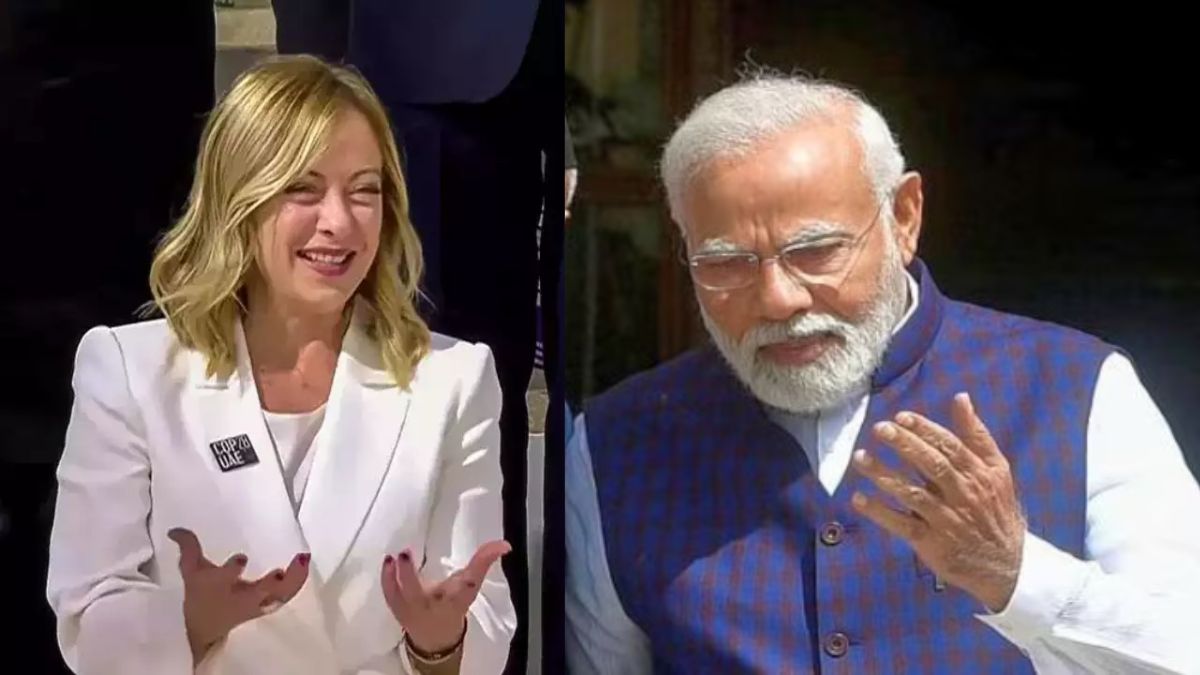The G7 Summit, scheduled to take place from 13-15 June in Italy’s picturesque Puglia region, comes at a critical time. The world is grappling with multiple crises, including the ongoing wars in Ukraine and Gaza, and significant political events in the G7 countries themselves, with leaders like US President Joe Biden, France’s Emmanuel Macron, and Britain’s Rishi Sunak facing elections (and potential losses) soon.
The summit’s agenda reflects these circumstances, and other global challenges. Like in 2023, invitation has been extended to certain non-G7 nations, including India. We explain the agenda items of the summit and explore why India has been invited again.
On the G7 summit agenda
According to the official G7 Italy website, The summit will address a range of pressing global issues through six key working sessions:
Africa, climate change and development
Middle East
Ukraine
Migrations
Indo-Pacific and economic security
Outreach Session with invited nations and international organisations on Africa, the Mediterranean, artificial intelligence, and energy.
We dig deeper into each of these agenda points.
Ukraine war in focus
The conflict in Ukraine remains a focal point for the Group of Seven countries, four of which are in Europe. Ukrainian President Volodymyr Zelenskyy will participate in discussions, urging for more substantial support from Western allies.
The G7 leaders hope to finalise a deal to use profits from the interest on €300 billion of frozen Russian central bank assets to aid Kyiv. The plan involves using these profits as collateral for a loan of up to $50 billion, though technicalities regarding debt issuance and potential unfreezing of assets in a peace scenario remain contentious.
Focus on stopping the war in Gaza
The G7 will also focus on the Middle East, particularly the Gaza conflict. US President Joe Biden has proposed a plan for an immediate ceasefire between Israel and Hamas, the release of hostages, increased aid for Gaza, and a comprehensive peace deal ensuring the security of both Israel and Gaza residents. The G7 countries, including those in the United Nations Security Council (UNSC), have already accepted this resolution.
Impact Shorts
More ShortsFor these countries, stopping the war in Gaza is crucial because of several reasons, including domestic and international pressure, the need prevent a spillover from the conflict in the oil-rich region, and to prevent collateral damage such as attacks on ships in the Red Sea.
Importance of the Indo-Pacific for G7
The Indo-Pacific is of strategic significance, particularly for Japan, the only G7 member located in the region. These countries are formulating policies to engage more deeply with this region, recognising its economic potential and the strategic challenge posed by China’s expanding influence.
European G7 members, including the UK, France, Germany, and Italy, have shown increasing interest in the Indo-Pacific, aiming to capitalise on economic opportunities and address regional security concerns.
Climate change
Climate change remains a key issue, especially as none of the G7 members are on track to meet their 2030 emission reduction targets. The G7 aims for a 40-42 per cent emission reduction by 2030, but current policies suggest only a 19-33 per cent reduction is likely. This shortfall highlights the need for stronger leadership from the world’s richest nations, responsible for a significant share of global emissions.
The summit will seek to reinforce commitments and explore new strategies to meet climate goals, with a particular focus on phasing out coal-fired power plants by the mid-2030s.
The importance of Africa for Meloni
Africa is a priority for Italian Prime Minister Giorgia Meloni, the summit host. She aims to position Italy as a key clean-energy link between the EU and Africa, reducing dependency on Russian gas.
The Mattei plan, a cornerstone of her foreign policy, involves significant investments in African infrastructure, development, and energy.
On the face of it, this initiative also seeks to address Africa’s development needs. However, analysts believe that Meloni may use the investment as leverage to get African nations to curb migration and take back migrants who Italy cannot take in.
Migration
Obviously, migration is a critical agenda item for Meloni’s government, which has implemented strict measures to curb arrivals while expanding legal immigration channels to address labour shortages. Meloni’s strategy includes forging agreements with African nations to prevent migrants from leaving and to accept the return of failed asylum seekers. The summit will discuss these strategies and seek broader cooperation to manage migration effectively.
In the backdrop are also the Rwanda Deportation Bill in the UK, and Meloni’s similar agreement with Albania to manage migrants.
Why India has been invited again
The G7 is a group of countries with advanced economies. With a GDP of $3.94 trillion, India boasts an economy larger than four G7 members (Canada, France, Italy, and the UK) and is one of the fastest-growing economies worldwide.
India’s strategic partnerships with multiple G7 countries, including the US, UK, France, Germany, and Japan, further underscore its significance.
Additionally, India plays a crucial role in the Indo-Pacific region, serving as a counterbalance to China’s assertiveness. Its improving relations with Italy, coupled with its longstanding ties with Russia and numerous African nations, position India as a key player in discussions on economic security, geopolitical stability, and development.
In addition to India, several other leaders from non-G7 member countries have been invited to the summit. These include President Recep Tayyip Erdogan from Turkey; Crown Prince Mohammed bin Salman of Saudi Arabia, United Arab Emirates’ President Sheikh Mohamed bin Zayed Al Nahyan, Brazilian President Luiz Inacio Lula da Silva; and President of Argentina, President Javier Milei.
Notable international representatives also include UN Secretary-General Antonio Guterres, and officials from the IMF and the World Bank. Furthermore, leaders from African nations such as Kenya, Algeria, and the African Union have been invited.
With inputs from agencies
)